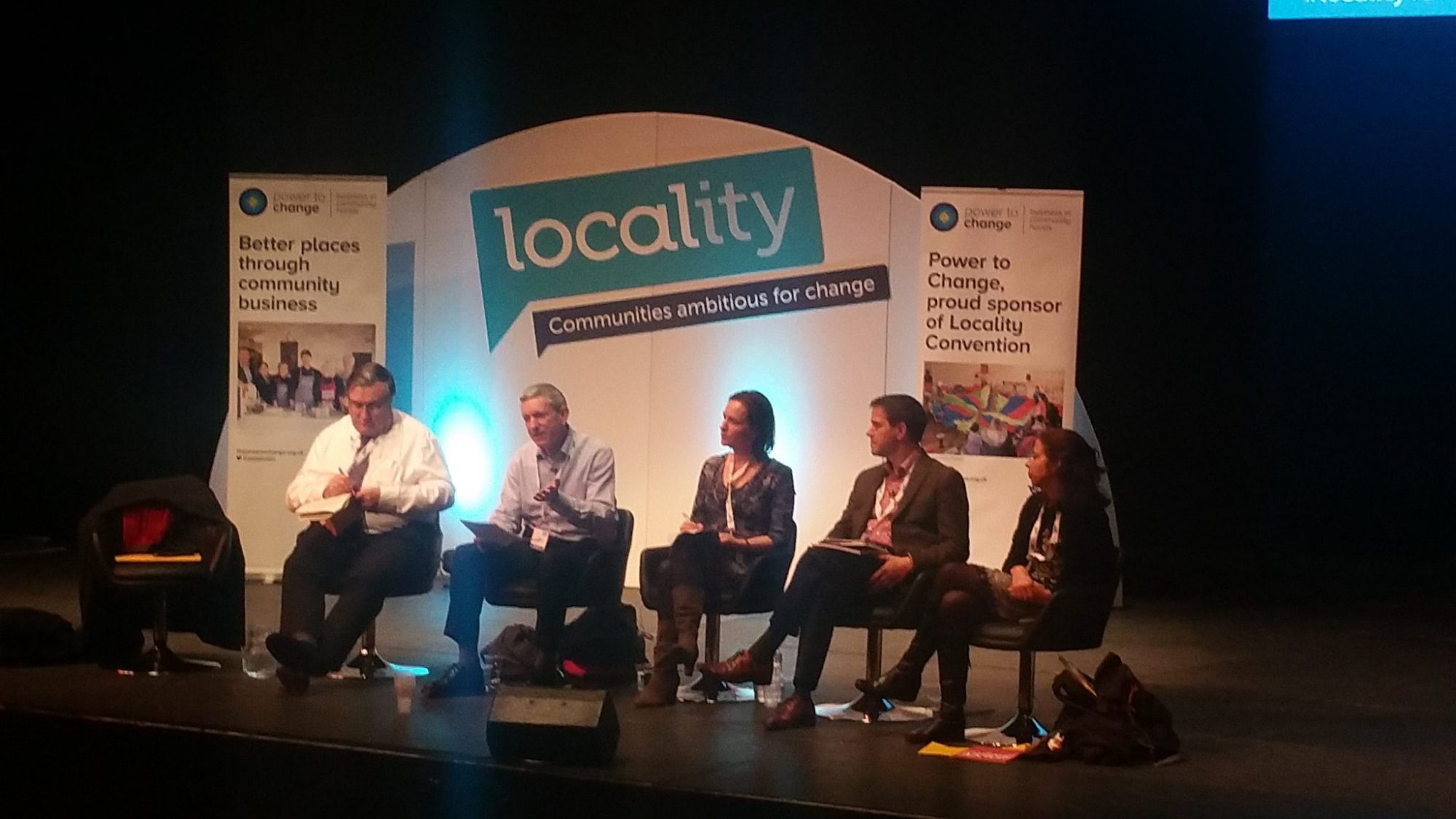
Ailbhe McNabola – Head of Research and Policy, Power to Change
At the Locality conference this week I had a rare treat. I got to listen to a senior civil servant—Stephen Aldridge, Director for Analysis and Data at the Department for Communities and Local Government (DCLG)—share a frank summary of how to present evidence to influence the direction and implementation of public policy.
Power to Change had invited Stephen, along with Dr Emma Stone of Joseph Rowntree Foundation, Cathy Irving of the Health Foundation and Dan Corry of New Philanthropy Capital, to share their experience and advice with community groups and community businesses.
Stephen addressed two questions in particular: What does a government department expect to see by way of high-quality evidence; and once you have that evidence, how can you best engage with civil servants?
So what secrets did Stephen share?
When a government department asks for high-quality evidence, it means evidence that:
- Improves their understanding of economic, social and other problems
- Identifies the causal drivers of problems—now and in the future
- Helps decision-makers understand the range of options open to them—and how to deliver them
- Improves understanding of economic and social systems, and the respective efficacy of markets and government institutions
- Offers robust methods for appraising, monitoring and evaluating policies and programmes
- And, above all perhaps, helps policymakers achieve Ministers’ objectives
Some examples of evidence that has influenced policy:
- Research showing the importance of credibility and trust to the effectiveness of monetary and fiscal policy. This underpinned the decision to grant operational independence to the Bank of England and later create the Office for Budget Responsibility
- Research across a range of areas highlighting the importance of prevention and early intervention as cost-effective ways of tackling a range of economic and social problems
- Academic research showing the long term scarring effects of prolonged economic inactivity on people’s life chances—which helped make the case for pro-active labour market policies

So once you’ve got some excellent evidence, how do you use it to make your case for change to civil servants?
- Research and evidence needs to be relevant, clearly presented, free of waffle and jargon, tightly argued, persuasive, compelling and focused. It needs to focus on the right issues at the right time
- The political environment can matter as much as what the evidence says. Political values and public opinion matter
- Be patient and work at it. Don’t expect immediate impact. It may take time, because the evidence runs counter to the prevailing culture or because there isn’t the capacity to absorb and act on evidence. It may take a steady stream of analyses and fresh thinking to build trust and confidence of policymakers
- Think about a wide variety of channels, from building personal relationships with key officials to participating in seminars and offering occasional think pieces to solve practical problems facing policymakers. Your organisation may even run secondments to Whitehall departments
And lastly, who else should you be talking to?
- It is about more than the civil service. If you engage Ministers and their advisers, it can influence how policy is implemented; work with Shadow Ministers can influence the overall direction of policy while it is formed in Opposition
- And it isn’t just Whitehall, either. In the new world of devolution and directly-elected Mayors, influencing will sometimes matter most at the levels of government below the national level
